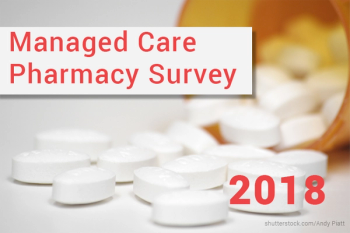
A new study has revealing findings about the link between stress at work and heart disease and diabetes.

A new study has revealing findings about the link between stress at work and heart disease and diabetes.

A new Accenture study reveals how the aggressive adoption of artificial intelligence plays a greater role in healthcare decision making.

To identify the top managed care pharmacy challenges and what your peers are doing about them, Managed Healthcare Executive conducted its annual pharmacy survey during the first quarter of 2018.

A new annual report from PwC as reveals how employers struggle to contain employee coverage costs.

The manufacturer of bevacizumab (Avastin), snagged FDA approval for yet another type of cancer.


The right technology will enable increased population health efficiencies while simultaneously reducing the resource burden associated with managing that effort. Here are three specific capabilities to look for.

Five generations make up the nation’s current workforce and differences exist in each one. Here’s a multi-faceted approach employers can take to engage a multi-generational workforce in their healthcare benefits.

University of Pennsylvania researchers share evidence-based strategies for reducing unplanned emergency department and hospitalizations of patients with cancer.

Starting or strengthening a provider-led health plan leads to true integration, resulting in quality care.

Healthcare experts weigh in on the president’s plan to lower drug prices. Here’s what they said.

FDA approved the first biosimilar to Neulasta, as well as a new combination treatment for osteoarthritis pain and hypertension and a new drug to treat chronic lymphocytic leukemia.

The manufacturer of two cancer drugs hiked the price on the medicines despite President Donald Trump’s new plan to lower drug prices.

Virtually all healthcare leaders recognize the value of content creation, yet the use of a well-defined content strategy is rare. Here’s how to get yours.

A Quest Diagnostics study sheds light on Medicare patients with multiple chronic conditions and the top three care gaps.

Rapid advances in the availability of big data and in machine learning offer significant opportunities to improve the healthcare system.

A study evaluated how treating military veterans with HCV early impacted their risk for non-Hodgkin lymphoma and various other diseases.

A study of Medicaid and Medicare Advantage plan members shows that addressing social determinants of health is important not only to reduce health spending, but also to improve patient outcomes.

Treating patients with cancer is often challenging yet rewarding work. But caring for patients in an urban setting, where some patients don’t speak English and other patients aren’t fully insured and possibly facing significant financial challenges.


Here’s how community oncologists seize opportunities to improve the quality of care and create performance metrics.

Montefiore Medical Center in Bronx, New York, is participating in CMS’ oncology care model, a value-based payment arrangement. Find out what new group of staff members is helping it succeed.


Analysis from Avalere shows why healthcare execs should understand how oncology practices are evolving in response to the OCM.

FDA is warning that 2 liquid-filled intragastric balloon systems used to treat obesity are causing deaths in some patients

FDA’s new guidances on Risk Evaluation and Mitigation Strategy (REMS) requirements aims to help generic and biosimilar drugs get to market faster.

A survey from EY reveals how consumers use technology and how to mix engagement tools and existing EHR features.

Using EHRs and other technologies can enhance care coordination, patient engagement.

Many healthcare organizations are expanding leadership roles to help meet business and patient-centered goals.

A Canadian study has exciting findings about offspring exposed to tumor necrosis factors.